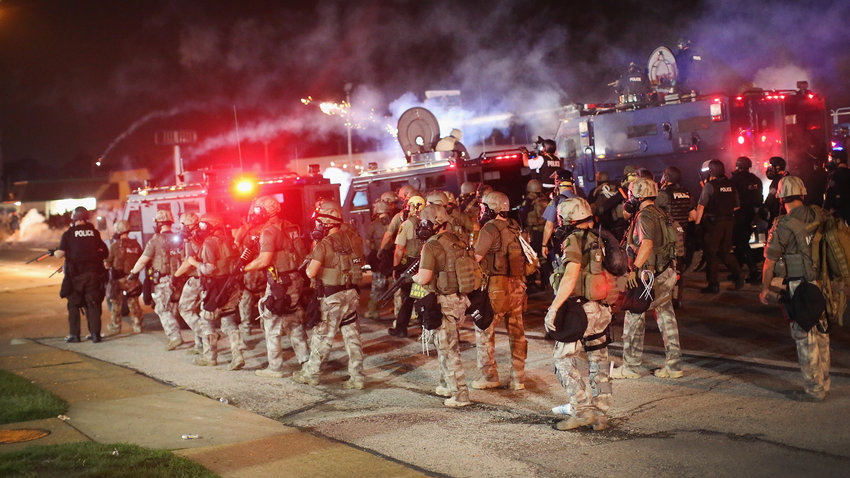
CHRISTMAS IN FERGUSON
The national conversation has been boisterous and divided in the aftermath of the grand jury findings announced in Ferguson, Missouri, last week. Ever since the shooting death of black teenager Michael Brown by white police officer Darren Wilson last August, the reaction of Americans has generally split along racial lines. So it was over the death of Trayvon Martin nearly three years ago, as well as over the verdict in the O. J. Simpson trial two decades ago. The racial divide in this country is undeniable, and the election of the first Black American as President of the United States has not diminished our division. So what position is the church of Christ to embrace in the midst of so polarized a society? Where should the disciples of Jesus stand? If Christ’s Sermon on the Mount is a template for discipleship, then His words are clear: The followers of Jesus will be identified by their poverty of spirit, their mourning with those who suffer, their radical humility, their hunger and thirst for justice and righteousness, their mercy, and their purity of heart (see Matthew 5:5-12). That seems clear enough. But perhaps most compelling of all is the beatitude, “Blessed are the peacemakers” (v 9). In some very tangible and realizable sense, the follower of Christ is to move through society—according to this admonition of the Master—as one who continually seeks to make peace, to broker it, to cling to the fragile hope that it may even yet take root and blossom in the raw earth of our enmities. “Blessed are the peacemakers” is not the abolition of justice or the absolution of injustice. But it is the studied effort to resist the polarization of side-taking; it is a bold meekness that chooses instead to conciliate two hostile camps. In a sense it is the effort to be like Jesus. Of that effort John Howard Yoder observes in his seminal study The Politics of Jesus: “There is thus one realm in which the concept of imitation holds—but there it holds in every strand in the New Testament literature and all the more strikingly by virtue of the absence of parallels in other realms: this is at the point of the concrete social meaning of the cross in its relation to enmity and power. Servanthood replaces dominion, forgiveness absorbs hostility. Thus—and only thus—are we bound by New Testament thought to ‘be like Jesus’” (134). “Blessed are the peacemakers,” who like their Master, speak truth to power and forgiveness to enmity. “. . . for they shall be called the children of God.” The very children desperately needed in that town in Missouri and this village in Michigan this Christmas. What else will heal the fractured divide we know all too well there and here—if not the One at whose midnight coming the angels once sang, “. . . and on earth, peace, good will, to all”?